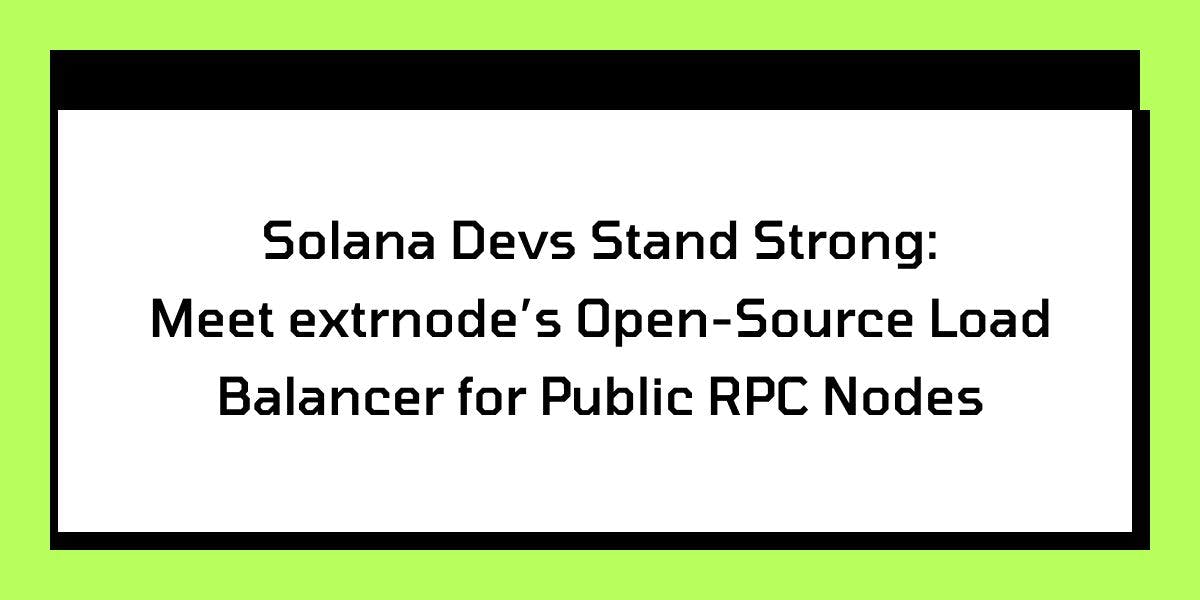792 reads
Solana Goes Forth with extrnode’s Open-Source Load Balancer
by
November 20th, 2022
Audio Presented by

extrnode is a public load balancer to allow developers to connect their dApps to a cluster of public RPC nodes
Story's Credibility

About Author
extrnode is a public load balancer to allow developers to connect their dApps to a cluster of public RPC nodes
